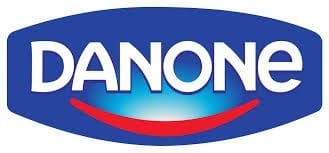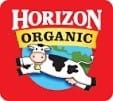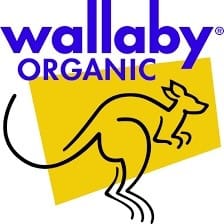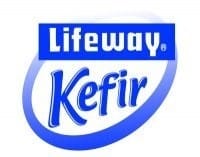France’s Groupe Danone’s purchase of WhiteWave would combine Stonyfield, Horizon and Wallaby to Dominate the Organic Dairy Market
The French dairy giant, Groupe Danone (Dannon in the U.S.) has announced the proposed acquisition of WhiteWave Foods for approximately $10 billion. The deal would combine the world’s largest organic yogurt brand, Stonyfield, with Wallaby, a rapidly growing yogurt label, and the nation’s largest brand of organic milk, Horizon. The Cornucopia Institute, an organic industry watchdog, said they were formally challenging the acquisition based on the serious erosion of competition it would create in the consumer marketplace and the negative economic impact it would have on U.S. organic dairy farmers.
![]() WhiteWave brands are the top sellers in their categories. Horizon organic milk controls nearly 25% of the organic milk market, while their Silk brand is a leader in plant-based beverages. Danone will be taking control of a bigger piece of the organic dairy market than has ever been controlled by a single company before.
WhiteWave brands are the top sellers in their categories. Horizon organic milk controls nearly 25% of the organic milk market, while their Silk brand is a leader in plant-based beverages. Danone will be taking control of a bigger piece of the organic dairy market than has ever been controlled by a single company before.
“With this acquisition we are concerned that Danone will easily be able to beat out any competition by lowering prices beyond what farmstead dairies, and more moderately sized milk processors and marketers, can withstand,” said Kestrel Burcham, a livestock policy analyst with the Wisconsin-based Cornucopia Institute.
Dairy has long been the first food consumers’ associate with the organic label. In many households organic milk is among the first foods introduced to children. Following fruits and vegetables, organic dairy products are the second largest product segment in the organic industry. “As such a key part of the organic market, it is vital that competition remains open,” Burcham added.
The Cornucopia Institute makes this argument in letters calling on the Department of Justice and the Federal Trade Commission to treat this merger as suspect. They have also launched a petition drive on their website pushing for a full investigation of the proposed merger by federal regulators.
The market for organic dairy already has less competition than other agricultural sectors and is more susceptible to monopolization. “It is important that the authorities look at the anti-competitive implications of the Danone-WhiteWave deal,” continued Burcham, “We ask that they consider the organic dairy and organic yogurt markets in particular as different and already more concentrated markets in comparison to Danone’s other, non-organic market share.”
Burcham, who in addition to her expertise in livestock agriculture is trained as an attorney in environmental law, added, “These are important considerations for determining whether this acquisition violates the Sherman Act and the Clayton Act for anti-competitive and anti-trust reasons.”
 Danone is already a majority shareholder of Stonyfield, the largest organic yogurt brand worldwide, and owns a 21% stake in the Lifeway organic Kefir brand. Adding WhiteWave’s Wallaby and Horizon Organic brand yogurts to Danone’s existing market share will allow the dairy conglomerate to control a sizable slice of the U.S. organic market.
Danone is already a majority shareholder of Stonyfield, the largest organic yogurt brand worldwide, and owns a 21% stake in the Lifeway organic Kefir brand. Adding WhiteWave’s Wallaby and Horizon Organic brand yogurts to Danone’s existing market share will allow the dairy conglomerate to control a sizable slice of the U.S. organic market.
“Mergers like this one could eventually reduce options and raise prices for consumers without any positive impact on the quality of the products they are buying,” said Mark A. Kastel, Cornucopia’s codirector. “With less competition, big companies commonly underpay independent farmers for their products, undermining the economic viability of small, family-scale farms. We should be very wary of this acquisition.”
Kastel went on to explain that the multibillion-dollar acquisition could seriously erode wholesale competition in other less obvious but potentially ominous ways.
The number two brand of organic milk in the marketplace, Organic Valley, is produced by a member-owned farmer cooperative that has been the longtime raw milk supplier to the Stonyfield yogurt brand. If, after its acquisition, Danone decides to dump Organic Valley, a Horizon competitor, as a supplier, it could leave only one major purchaser of farm milk in some regions of the U.S., like New England.
Complicating the matter, one of the other leading brands of fluid milk, marketed under the Stonyfield label, is actually produced and distributed by Organic Valley. “We are talking about the potential for a major disruption in the marketplace and erosion of true competition which has historically benefited farmers,” said Kastel, a longtime analyst on dairy policy issues and former lobbyist with the Farmers Union.
Under both Democratic and Republican administrations, antitrust enforcement in the U.S. has been anemic, at best, over the past two decades. However, recent decisions by the DOJ to scrutinize the Staples/Office Depot merger, and major proposed consolidations in the beer and healthcare industries, organic dairy farmers optimistic that closer scrutiny of the Danone/WhiteWave deal is possible.
“Dairy farmers commercialized the organic industry, starting in the 1980s, because of the oppressive control of the conventional milk market by an increasingly concentrated group of companies allegedly manipulating the market,” said Peter Hardin, perennial industry observer and publisher of The Milkweed, a dairy publication. “Ironically, Dean Foods, the original parent company of WhiteWave, was long viewed as the consummate industry ‘bad actor’ and was under scrutiny by the Justice Department for market manipulation. The corporate kingpins that run the company are still making billions at the expense of hard-working dairy families.”
MORE:
Groupe Danone’s 2015 revenue was pegged at $25 billion (€22.4 billion) while WhiteWave sales for the year ending December 31 totaled $3.9 billion.
“This merger also represents a ‘clash of cultures,’” opined Cornucopia’s Kastel.
 |
 |
One of the companies, Stonyfield, built its reputation and brand on its imagery of supporting family-scale dairy farms, predominantly in the Northeast. Then there is WhiteWave, a former division of Dean Foods, the largest corporate dairy enterprise in the U.S. A substantial percentage of the milk used in their Horizon products come from factory-dairies, west of the Mississippi, many milking thousands of cows each. This organic production is taking place in states, like Texas, Idaho, New Mexico, and eastern Oregon, where conventional dairy has shifted to over the last two decades.
Kastel added, “Which production model dominates, in the new merged entity, will have a great impact on the future financial viability of family dairy farms in this country. If the management and infrastructure at Horizon takes charge, many of the smaller dairy farms will become expendable as more, cheaper milk, produced on industrial-scale dairies, becomes available.”
 Currently The Cornucopia Institute is investigating reports of new giant organic dairies, each milking 2,000-5,000 cows, springing up in Oregon, Idaho and Texas. Many of these operations milk three to four times per day, rather than twice which is the standard on farms that move their cattle back and forth to pasture each day. In addition, state regulatory documents indicate some of these dairy operations have as many as 10 cows per acre whereas previous polling done by Cornucopia indicated the national average for organic producers was one cow per acre.
Currently The Cornucopia Institute is investigating reports of new giant organic dairies, each milking 2,000-5,000 cows, springing up in Oregon, Idaho and Texas. Many of these operations milk three to four times per day, rather than twice which is the standard on farms that move their cattle back and forth to pasture each day. In addition, state regulatory documents indicate some of these dairy operations have as many as 10 cows per acre whereas previous polling done by Cornucopia indicated the national average for organic producers was one cow per acre.
 “If this merger is allowed to go through, it may very well exacerbate the illegal and unfair competition being condoned currently by the corporate-friendly regulators overseeing the organic industry at the USDA,” Kastel lamented.
“If this merger is allowed to go through, it may very well exacerbate the illegal and unfair competition being condoned currently by the corporate-friendly regulators overseeing the organic industry at the USDA,” Kastel lamented.

